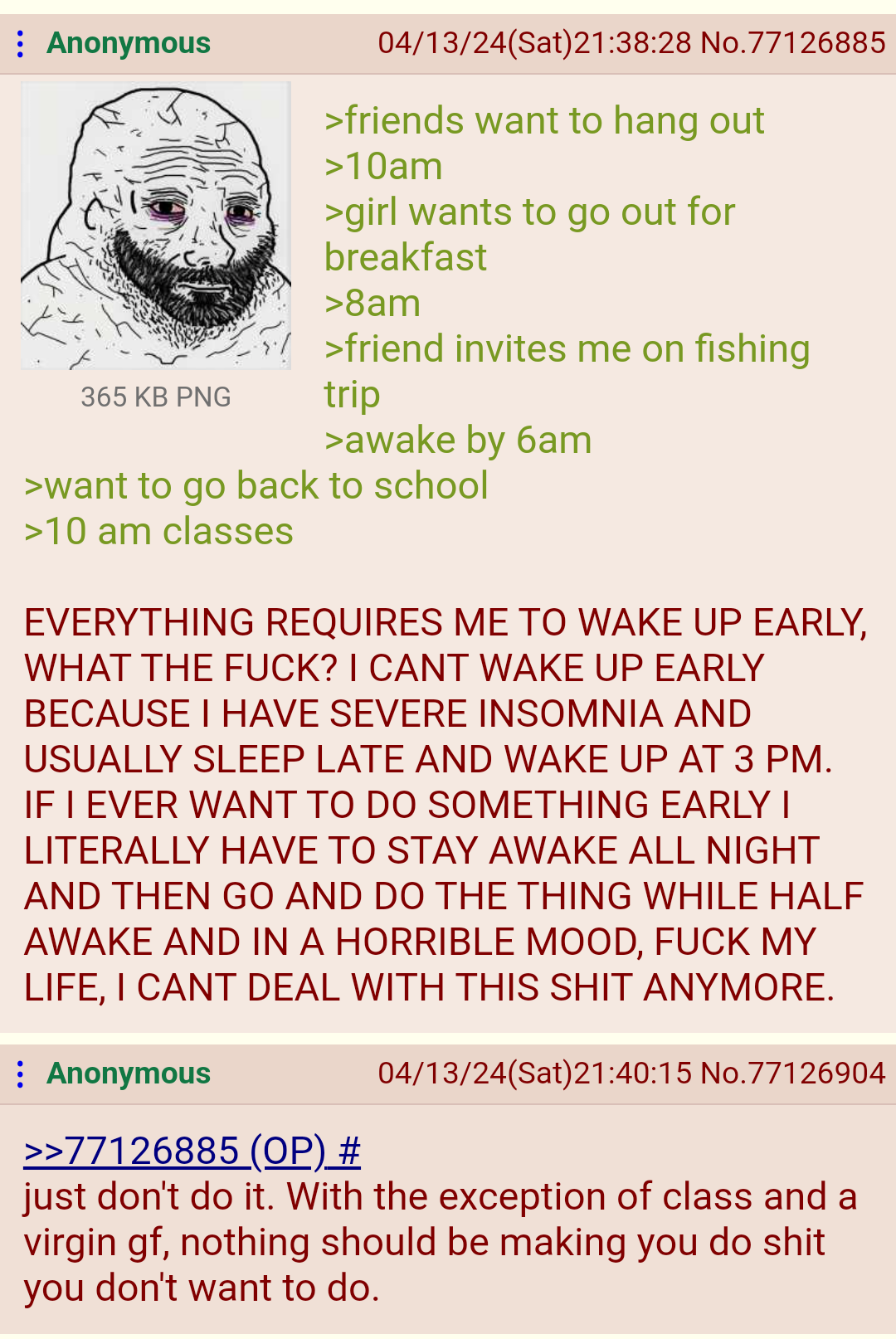this post was submitted on 14 Apr 2024
248 points (91.6% liked)
Greentext
4792 readers
778 users here now
This is a place to share greentexts and witness the confounding life of Anon. If you're new to the Greentext community, think of it as a sort of zoo with Anon as the main attraction.
Be warned:
- Anon is often crazy.
- Anon is often depressed.
- Anon frequently shares thoughts that are immature, offensive, or incomprehensible.
If you find yourself getting angry (or god forbid, agreeing) with something Anon has said, you might be doing it wrong.
founded 1 year ago
MODERATORS
you are viewing a single comment's thread
view the rest of the comments
view the rest of the comments

Did they? I'll have to look. I know reputable sources were talking about blue light specifically as of a few years ago, but science always changes so it's possible. I'd love a link if you've got it, but don't feel obligated.
i remember reading a study a couple of years ago but i wouldnt be able to find it again. in any case i still use blue light filters for the reduced eye strain and light amount at night.
Thank you for replying, because it reminded me to look for actual studies today :) Edit: If you want a TL:DR, I found this article which describes the study I found below in less technical terms. Basically it may not just be blue light that's bad (supporting what you said), although using blue-light blockers and night modes is still a good idea.
I found this 2023 study that (via a lot of technical detail) basically says it doesn't matter if the light is blue or yellow. The authors say theirs was a smaller study limited to 16 participants and shorter exposure times by budget constraints, but it supports what you said. If you scroll down to the last paragraph they say exposure to short-wavelength light (blue-to-yellow) should be reduced in the evening, and recommend phones, computers etc. have various kinds of night modes and that they be used.
So the summary seems to be that there's a study that says blue light IS hard on sleep, but it's not just blue light - it's all light with more energy than red/orange light (i.e. the light you'd get naturally at sunset). It's just one study and a small one, but that may be what you read and it's a good starting point for further research.
thats exactly the one i read. thanks for sharing your research.
Thanks for sharing yours too! Science is always about getting it more and more right.